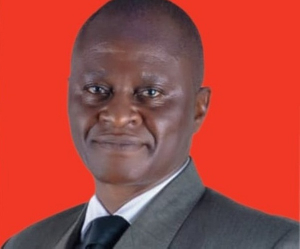Mr Stephen Awunyo-Akaba, the Programmes Director of Future Generation’s International (FUGI), complaining about the low coverage of immunization in some areas, has tasked fathers to work in concert with their wives to meet the immunization schedules of their children.
He said men needed to support their wives through pregnancy and in the nurturing of their children, especially through the formative years of the kids.
Mr Awunyo-Akaba was speaking at a Pre-Implementation Training Workshop for Community Health Committees, Community Health Volunteers and selected Community Health Nurses towards reversing the low figures being recorded lately during immunization programmes in the Ho Municipal Area.
The project is a Ghana Health Service (GHS), FUGI, and Global Alliance for Vaccines and Immunization (GAVI) collaboration.
Mr Awunyo-Akaba, whose organisation, is a health and population-focused-NGO, based in Ho, put the immunization coverage last year in the area at about 49 per cent.
Mr Awunyo-Akaba said a key reason for the low coverage was the ignorance among parents about the importance of the immunization.
He listed the large population in the Ho-Urban, weakening authority of traditional leaders, logistics problems of nurses, and the extensive coverage areas in Ho-Rural, as some other causes of the low immunization turnouts.
Mr Awunyo-Akaba mentioned Toviadzi and Muviefe electoral areas, Agbenorxevi Annex, Barracks Newtown and newly developing areas beyond the Ho Polytechnic; areas 51, 52 and 53 as some of the critical low turnout areas in Ho-Urban.
He mentioned the three Lume communities, Atsame, Kpodoave, Ge, Kpenoe, Hodzo-Ve and Hodzo-Anyiboboe as the critical areas in Ho-Rural.
Mr Awunyo-Akaba said the situation where vaccines were probably wasted during past immunization drives because numbers per ampule, were not available, was very disappointing.
“Every child who is not immunized is a health risk,” he stated, reiterating the call of Mrs Joan Awunyo-Akaba, FUGI’s Executive Secretary, for a National Immunization Fund, as GAVI was gradually reducing subsidies on the vaccines.
Mr Awunyo-Akaba said the strategy being adopted was to work through Community Health Committees at the Apex, Community Health Nurses and Community-Based Health Volunteers.
He said the approach would be methodical, using demographic profiles of community populations, so that children dropping out of the immunization process could be traceable.
Ms Vivian Tetevi, a Ho-Central Municipal Public Health Nurse, observed that sheer pressures of seeking livelihood sources for the family often made mothers to shelve important issues of making their children available for immunization.
She said whilst Ho-Urban had no volunteers to help nurses there, Community Health Nurses in Ho-Rural were overwhelmed by the job.
“One nurse to a CHPS Zone, monitoring pregnant women, and children, visiting homes, doing adolescent sexuality education and more, you can see is a lot of work,” Ms Tetevi stated.
Louis Gavi, Deputy Volta Regional Director of the Statistical Service, took participants through the ways of conducting a census.
Regional News of Thursday, 26 March 2015
Source: GNA
















